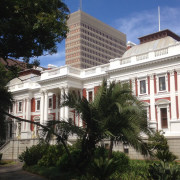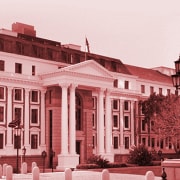|
Getting your Trinity Audio player ready...
|
South Africa has come second in budget transparency globally, with Georgia overtaking both South Africa and New Zealand to claim the first spot in the 2021 Open Budget Index (OBI), conducted among 120 countries by the International Budget Partnership (IBP) through an open budget survey. IBP is the world’s only independent, comparative measure of budget transparency, participation, and oversight. The 2021 OBI is the eighth edition.
“The survey is rooted in the premise that open and accountable budget systems are transparent, offer opportunities for inclusive public participation, and include effective oversight by independent institutions,” says IBP.
The IBP analyses eight key budget documents: pre-budget statement, executive budget proposal, enacted budget, citizens budget, in-year report, mid-year review, year-end report, and audit report. Countries are rated on three factors: public participation (at different stages of the budget process), budget oversight (legislative and audit), and transparency (public access to information on how resources are raised and spent).
In 2021, South Africa took a surprise slip into second place – the country had taken top spot in the 2019 OBI. Nonetheless, it still maintains its reputation as a global leader since it continues to strengthen its commitment to a transparent budget system, says National Treasury.
Of the African countries on the OBI, South Africa tops the list, though it is bested by Zambia in the category of public participation. Sub-Saharan Africa is one of four world regions that have seen significant increases in their regional scores between the open budget surveys (OBS) from 2008 to 2021. Countries in this region, says IBP, showed “notable progress in the first three surveys”, but then experienced a sharp decline in 2017, partly due to a change in OBS methodology requiring documents to be published online.
“Since then, these countries have seen improvements in their scores, recouping nearly all the losses and pushing them well above their OBS 2008 scores.”
In the category of public participation, South Africa scores 19 out of 100 which National Treasury recognises is low, even though it is better than the global average of 14. Steps are already being taken following the last OBI survey results, like South Africa participating in the Fiscal Openness Accelerator pilot project – in partnership with IBP and the Global Initiative for Fiscal Transparency – to further strengthen public participation in the budget process. The pilot is in its second and final year and the objective is to improve the approach will be to solicit inputs from the public, in pursuance of improving public participation in the budget process.
In the second category, transparency, South Africa scores 86 out of 100, far above the global average of 45. In this category the country is second only to Georgia. A transparency score of 61 or above, says IBP, indicates a country is likely publishing enough material to support informed public debate on the budget. Nevertheless, the organisation recommends that South Africa should, as a priority, “improve the comprehensiveness of the enacted budget by presenting approved estimates of expenditure by functional classification and approved estimates of revenue by category and individual source”. This will help to counter the gradual transparency decline that South Africa sees on the OBI, from 92 in 2010 to 86 in 2021.
In the third category, oversight, South Africa has an overall score of 81 out of 100, managing 72 out of 100 on legislative (Parliament) oversight and 100 on audit (Auditor-General) oversight. It is one of only 41 countries, out of the 120 assessed, that has what IBP deems adequate oversight – a score of 61 and up. This continues to reflect South Africa’s commitment to enhancing its budget process, says the treasury, and fostering public participation as enacted in the South African Constitution.
The OBI survey provides a comprehensive review of South Africa’s budget process. Citizens are encouraged to use the information published in budget documents for effective analysis and research.








